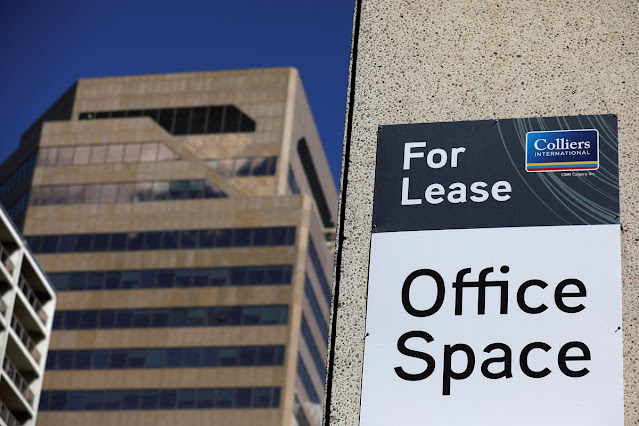Keep in mind, bosses—employees don’t really want your Amazon gift card, gag gift, or company mug. The real prize under the tree at the company party is paid time off.
That’s exactly what Colourette, a cosmetics company based in the Philippines, raffled off during its holiday party. Nina Ellaine Dizon-Cabrera, CEO of Colourette, posted to LinkedIn that one of its raffle prizes was five extra days of paid vacation leave in the coming year for three employees. She posted a video of the raffle on TikTok, with cheers and applause among employees sounding off in the background.
She shared the TikTok video on Facebook with the caption, “We should give out more of these next year!”
After all, paid time off is an appealing prospect: Half (50%) of workers in the U.S. would take unlimited PTO over higher pay, according to a Harris Poll for Fortune of 2,000 workers.
But it can be hard to know what to do with so much of a good thing. Devoid of clear expectations, employees can feel guilty for taking this time off if their manager or company culture creates a stigma around it. Such flexibility remains an important way to help employees mental health and retain workers, but companies must make sure bosses make it clear that it’s okay to take time off.
But when workers do take a vacation, some become nervous about the work sitting for them when they return. Monster deems this pressure as “PTO woes.” A whopping 87% of 1,399 employees polled by the careers site report experiencing PTO woes, and 72% add that they’ve decided not to ask for time off because of how intense this anxiety was.
A company like Colourette that outlines and encourages taking paid leave can potentially mitigate these worries and hesitancy. But the Philippines has more of an explicitly permissive paid leave culture than the U.S., as employees are entitled to five days of PTO annually. While this might seem small, most companies based in the country offer 12 to 15 days. Meanwhile, the U.S. has no national paid leave policy, leaving it up to the discretion of the company. As such, the U.S. is ranked the second-worst country globally when it comes to allotted paid vacation days.
Maybe it’s time that U.S. employers take a signal from other countries and join the PTO raffle train this holiday season, or simply start outlining it as a federal right.
Fast food may remain affordable for at least another year in California, but possibly at the expense of increased wages for the industry's work.
AB 257, or the FAST Act, also known as the Fast Food Recovery Act, was signed into law by California Gov. Gavin Newsom on Sept. 5 to go into effect in January. Two days later, the FAST Act was met with a voter referendum effort to block the law.
A million signatures and 90 days later, the block proved successful. The law can’t be implemented unless it wins a ballot vote in November 2024.
The FAST Act would give an appointed 10-member state council, or “Fast Food Council,” wide-ranging authority over fast food and fast casual restaurants in California with more than 100 locations nationwide. The council could raise the minimum wage to $22 per hour in 2023 and up to 3.5% annually after that. It could also set minimum standards for working conditions, maximum hours worked, security, and more.
The Service Employees International Union (SEIU) claims the bill gives workers “a seat at the table to help set wage, health, safety, training standards across the fast-food industry,” while opponents claim food prices would soar as much as 22%, bringing further hardship to those already suffering under the highest inflation in a generation.
How would this fast-food act impact small businesses?
Increased costs ultimately mean fewer small, local restaurants, studies show.
If wages rise to around $22 per hour, labor costs could increase by more than 60% for these businesses, wrote Christopher Thornberg, director of the University of California, Riverside School of Business Center for Economic Forecasting and Development in a study this year supported by the International Franchise Association (IFA).
California’s Department of Finance opposed the bill in June, saying it would be expensive to enforce and “could lead to a fragmented regulatory and legal environment for employers and raise long-term costs across industries.” The department also questioned if the bill would even accomplish its goal.
Of 67 economists in an August Employment Policies Institute survey, 93% expect operating costs will rise, 84% said fewer restaurant chains would want to operate in California and 73% said franchisees will close restaurants.
Franchise-focused research firm FRANdata estimates the bill will affect 16,753 franchised locations in California operated by 5,820 franchisees.
How would consumers pay the price?
About 70% of Californians, or 28 million people, eat at quick-service restaurants each week. Underrepresented communities, and those who can afford it least, will be hit hardest as businesses pass on higher costs to consumers.
“The measure would establish an unelected council to control labor policy in the counter-service restaurant industry, cause food prices to increase by as much as 20% during a period of decades-high inflation, and harm thousands of small family-, minority-, and women-owned businesses across the state,” Save Local Restaurants, led by the National Restaurant Association, IFA and The U.S. Chamber of Commerce, said in a statement.
For every 20% to 60% increase in wages, Thornberg estimates restaurant prices will rise 7% to 22%. Some IFA members forecast prices could rise more, possibly as much as 40%.
Households with an average annual income of $35,000 would pay an extra $184 per year to maintain their current levels of consumption if wages rose 20%, Thornberg estimates.
Who could the bill hurt?
“If you are a small business owner running two restaurants that are part of a national chain, like McDonald’s, you can be targeted by the bill,” Joe Erlinger, McDonald’s USA president, wrote last summer. “But if you own 20 restaurants that are not part of a large chain, the bill does not apply to you.”
Additionally, many business groups representing minority communities said the law would kill opportunity. "Not only do franchise models provide minority entrepreneurs with uncharted economic opportunity, but the franchise model represents a key pathway towards achieving the American Dream while also generating employment, revenue, and opportunity for their immediate communities,” they said.
Who benefits from the bill?
SEIU says California’s 550,000 fast-food workers, most of them Black or Hispanic, would benefit “with a seat at the table to help set minimum industry standards around wages, safety and training.”
The minimum wage in California is $15 an hour. The average fair-market rent for a two-bedroom apartment in the state jumped to $2,274 this year from $1,526 in 2021, according to RentData.org, which provides free rental price data for homes and apartments across the country.
But opponents say unions are the main benefactors. Typically, employees at one location must organize with labor unions to negotiate for them.
Under the FAST Act, though, unions can skip the organizing and instead go straight to negotiating, Sean Redmond, vice president of Labor Policy at the U.S. Chamber of Commerce, said.
“Labor unions and their political allies want to impose a form of sectoral bargaining that runs afoul of American labor policy,” Redmond said.
What happens next?
SEIU is questioning if all the million signatures the Save Local Restaurants Coalition collected to block the law are valid.
Assuming the signatures are valid, the bill wouldn’t go into effect until voters have their say in November 2024 on whether to adopt such a law.
If the bill passes, SEIU hopes copycat legislation will follow in other states. That would “clearly” have “anti-growth ramifications,” said Andy Barish, Jefferies analyst, in an analyst note in September.



